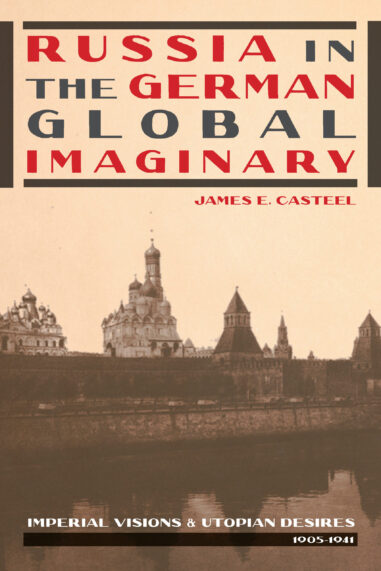
Paperback $55.00
Request Exam or Desk Copy. Request Review Copy
Russia in the German Global Imaginary
Imperial Visions and Utopian Desires, 1905-1941
Casteel argues that German images of Russia in the modern period reflected not only this international relationship, but also more widely were influenced by concepts of Germany's status in world politics, in 'a world of empires.' This is an important insight, and Casteel covers the subject thoroughly. He extends earlier scholarship to a global scale, and thus this is a valuable contribution to globalizing German history.

